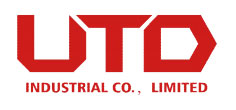
Recruitment Information
Job Responsibilities and Requirements of Sales Engineer
1. Strategic planning and execution: Develop and implement sales strategies for regional sales divisions to ensure the achievement of sales targets; Regularly evaluate sales performance and adjust strategies to respond to market changes.
2. Sales goals and plans: Based on the overall sales goals of the company, develop annual and monthly sales plans,; And track sales progress to ensure that all plans are completed on time.
3. Customer Relationship Management: Ensure timely collection of customer payments and maintain good customer relationships; Regularly conduct customer analysis, understand customer needs, and explore potential business opportunities.
4. Communication and reporting: Regularly report work progress to superiors, including daily, weekly, monthly, and annual work reports and plans; Maintain close communication with other departments to ensure smooth sales processes.
5. Quick response, strong expression ability, strong communication skills and interpersonal abilities, and affability;
6. Have certain market analysis and judgment abilities, and good customer service awareness;
7. Responsible and able to withstand significant work pressure;
8. Has team spirit and is good at challenging
Bonus points:
1. Have a deep understanding of the PCB industry and be able to grasp industry trends and dynamics.
2. Have experience in PCB cutting tools, drilling in circuit board factories, understand PCB technology, LED, stone black knives, cutting materials, denture knives, or have knowledge of the application environment and situation of the above cutting tools.
3. Priority will be given to those who are engaged in the sales and customer service of PCB related accessories, as well as those who have circuit board customer resources
Job responsibilities and requirements for technical engineers:
1. Have a deep understanding of the PCB industry, proficient in drilling and forming processes, familiar with various types of drill bits, milling cutters, and process parameters.
2. Participate in product testing, coordinate and promote the resolution of sample/trial production issues.
3. Have a certain level of market and customer thinking, maintain good communication with customers, coordinate with customers and internal company to solve product problems.
4. Implement technical training to ensure that employees in relevant positions understand and are familiar with the knowledge and skills related to the company's products.
5. Quick response, strong expression ability, strong communication skills and interpersonal abilities, and affability.
6. Having certain professional technical knowledge and good customer service awareness.
7. Responsible and able to withstand significant work pressure.
8. Has team spirit and is good at challenging.
1、 Job responsibilities and requirements for quality inspection personnel:
1. Responsible for quality inspection of raw materials, semi-finished products, and finished products to ensure compliance with national/industry standards and internal control standards of the enterprise.
2. According to the inspection regulations, use testing tools (such as calipers, spectrometers, microscopes, etc.) for sampling or full inspection, record data, and issue an inspection report.
3. Supervise key quality control points in the production process, promptly identify and provide feedback on process deviations. Participate in first piece inspection, patrol inspection, and final piece inspection to prevent batch quality issues. Identify and isolate non-conforming products, assist in analyzing the causes and propose improvement suggestions.
4. Track the process of rework, repair, or scrapping to ensure a closed loop for issues. Fill in inspection records and quality ledger to ensure the authenticity and traceability of data.
5. Regularly summarize quality anomalies and submit quality analysis reports. Communicate with departments such as production, technology, and procurement to promote the rectification of quality issues.
6. Familiar with inspection tools (such as micrometers, hardness testers, coordinate measuring instruments, etc.) and testing methods (such as dimension measurement, composition analysis). Can understand drawings, process documents, and quality standards (such as GB, ASTM). Proficient in using office software (Excel, Word) and quality management systems (such as MES, SPC).
7. Rigorous and meticulous, adhering to principles, and not letting go of any quality hazards. Can provide clear feedback on issues and coordinate production and quality objectives. Quickly grasp the inspection requirements of new products and standards.